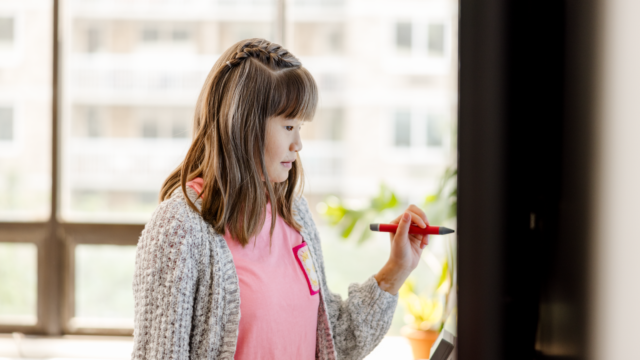
The first days and weeks back at school can be both exciting and overwhelming for teachers. You begin a new school year with a new class of students filled with different academic levels, learning styles, and interests. As you venture into a new school year, the process of teaching expectations and rules and creating a community in your classroom begins all over again.
It is important within the first week of school to try and create personal connections with each of your students. Students who have a personal connection with their teacher show higher levels of academic achievement. The best way to create bonds with your students is to have activities built into the first few days that give the students the opportunity to get to know you as their teacher and as a person, and provide the opportunity to get to know them as students and as kids outside of school.
First-grade jitters activities
As a first-grade teacher, I am constantly trying to think of new ways to get to know my students, ease the first-day-jitters, and create a learning environment with high expectations from the moment the students walk through the door. While each group of students will be different, there are some great activities you can implement in your classroom year after year. Here are three first-grade-jitters activities that are sure to be a success!
1. Create a growth mindset
A growth mindset is the idea that our abilities and intelligence can develop through hard work and dedication. Students learn in the first days of school to celebrate mistakes because science has shown that mistakes help our brains grow. Students are also given growth mindset phrases that can be used when something is challenging for them. Instead of saying “I can’t do this” or “this is too hard,” students use phrases such as “I can’t do this yet!” or “with practice, I will get better.” Creating a classroom community that encourages a strong growth mindset is key to ensuring that students believe that they can achieve at high levels.
I've had success using apps to communicate with parents and promote positive behaviors. You can also show your kids growth mindset videos and distribute related classroom resources during the first week or two of school.
2. Create a "Getting to Know You" presentation
Each year on the first day of school, I present my first-grade students with a “Getting to Know You” slideshow presentation on Google Slides or PowerPoint. I love this activity because it gives my students a chance to learn about me, but it also gives them a chance to learn about each other and become looped in on some classroom procedures. On each slide, I focus on something that I like. This could be as simple as what my favorite food is. On the next slide, students are introduced to a partner-talk activity that we do often in the classroom.
The partner-talk activity that the students learn is called Hand Up, Pair Up. While I play some music, students walk around the room, and when the music stops, students put up their hand and pair up with the student located closest to them. Once everyone is paired up, they share their response to the current slide with a partner. Students learn to put their hands back up when they are finished discussing so I can easily tell when we are ready to move on. Students then go back to their seats and get ready to share something else about themselves with a partner after learning more about me. This partner-talk process continues throughout the presentation until the slides are finished.
The main reason I love this activity is because it creates a sense of community while also teaching classroom expectations for partner talk, which is something that we do consistently throughout our school day. Students learn what it looks like to be a good partner and how to take turns when talking. If there is a different strategy that you use for partner talk, this would be a great way to introduce it to your students—you could even introduce more than one! Students won’t even realize they are learning classroom expectations because they will be having so much fun!
3. Do a STEM challenge
Science, technology, engineering, and math (STEM) challenges are a great way for students to learn to persevere and to work in groups. My favorite STEM challenge for the first day of school is the Cup Tower Challenge. All you will need are Dixie cups and a yardstick. Explain to students that each group will be given the same number of cups, and their challenge is to see who can create the tallest tower. Then, watch the magic happen.
You will quickly see which groups are able to work together cooperatively and which groups are struggling. This is a great opportunity for you to facilitate conversations about taking turns and listening to each other's ideas. At the end of each STEM challenge, we always create an anchor chart discussing the teams’ successes and challenges. Doing so allows students to reflect on how their group worked together and what areas of growth they may have for the next STEM challenge.
While the first days of school can be challenging and scary—especially for new teachers—these days can also be filled with many rewards as you create a classroom community. With these three first-day-jitters activities, you will set a strong foundation for expectations while getting to know your students as kids and learners. So say goodbye to those first-day-jitters and hello to an excellent school year!
The views expressed in this article are those of the author and do not necessarily represent those of HMH.
***
Amanda Rack is the third guest on our new podcast series, HMH Learning Moments: Teachers in America! Listen to Amanda's episode.
You can follow HMH Learning Moments: Teachers in America on Apple Podcasts, Spotify, or wherever you listen to podcasts. Please consider rating, reviewing, and sharing with your network.
This blog, originally published in 2019, has been updated for 2025.
Be the first to read the latest from HMH's blog, Shaped.












